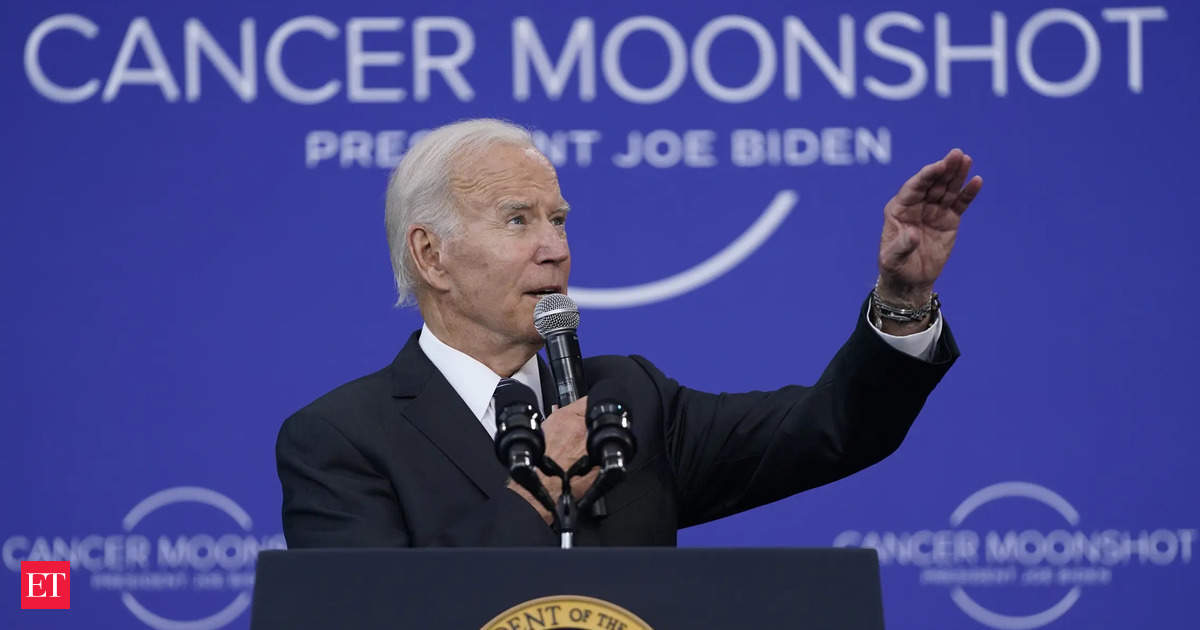President and First Lady Jill Biden will tour medical facilities and then deliver remarks at Tulane University on how Advanced Health Research Projects Agency “It is accelerating progress in how we prevent, treat and detect cancer,” the White House said. The agency is part of the Department of Health and Human Services.
Before he leaves office in January, Biden hopes to bring the U.S. closer to the goal he set in 2022 of reducing U.S. cancer deaths by 50% over the next 25 years and improving the lives of caregivers and those living with cancer.
Experts say the goal is achievable, with adequate investments.
“We are curing people of diseases that we previously thought were absolutely untreatable and insurmountable,” said Karen Knudsen, CEO of the American Cancer Society and the American Cancer Society Cancer Action Network.
Cancer is the second leading cause of death in the United States, after heart disease. This year alone, the American Cancer Society estimates that 2 million new cases of cancer will be diagnosed and 611,720 people will die from cancer. However, “if all innovation were to stop today and we could give people access to the innovations we know about now, we think we could reduce cancer mortality.” Cancer mortality “By 20 to 30% more,” Knudsen said. The issue is personal enough to Biden that, in his recent Oval Office speech about withdrawing from the 2024 campaign, the president promised to keep fighting for “my goal of ending cancer as we know it.”
“Because we can do it,” Biden said then.
He said in that speech that the initiative would be a priority of his final months in office, along with working to strengthen the economy and defend abortion rights, protect children from gun violence and make changes to the Supreme Court, which he called “extreme” in its current makeup during a recent event.
Both the president and first lady Jill Biden have had skin lesions removed in the past that were determined to be basal cell carcinoma, a common and easily treated form of cancer. In 2015, their eldest son, Beau, died of aggressive brain cancer at age 46.
The president’s public schedule has been much quieter since he dropped out of the race and endorsed Vice President Kamala Harris, making Tuesday’s trip stand out.
Advocates have praised Biden for keeping cancer care focused, uniting stakeholders and rallying commitments from private companies, nonprofits and patient groups.
They say the extra attention the Biden administration has paid to the issue has put the country on track to cut cancer death rates by at least half — preventing more than 4 million deaths from the disease — by 2047. It has done so by bolstering access to cancer treatments and reminding people of the importance of recommended screening tests, which took a setback during the coronavirus pandemic.
“President Biden’s passion and commitment to this effort has made monumental differences for the entire cancer community, including those living with cancer,” said Jon Retzlaff, chief policy officer for the American Association for Cancer Research.
Looking ahead, Retzlaff said, “The most important thing for us is to see strong, sustained and predictable annual financial support for the National Institutes of Health“And if we see that through the NIH and the National Cancer Institute, the programs that have been created through the Cancer Moonshot mission will be able to continue.”
Biden’s initiatives include changes that make cancer screening and care more accessible to more people, said Knudsen of the American Cancer Society.
For example, Medicare has begun paying for follow-up colonoscopies if a stool test suggests cancer, he said, and Medicare will now pay for navigation services to guide patients through the maze of their cancer care.
“They’ve already paid for cancer research. They’ve already paid for innovation. Now let’s get it to the people,” Knudsen said.
She also said she would like to see the next administration ban menthol-flavored cigarettes, which she says could save 654,000 lives over the next 40 years.
Scientists now understand that cancer is not a single disease, but hundreds of diseases that respond differently to different treatments. Some cancers have biomarkers that can be targeted by existing drugs that will slow tumor growth. Many other targets await discovery.
“We hope that the next administration, whoever it may be, will continue to maintain the focus and emphasis on our national commitment to ending cancer as we know it,” said Dr. Crystal Denlinger, CEO of the National Comprehensive Cancer Network, a group of elite cancer centers.
Disclaimer:
The information contained in this post is for general information purposes only. We make no representations or warranties of any kind, express or implied, about the completeness, accuracy, reliability, suitability or availability with respect to the website or the information, products, services, or related graphics contained on the post for any purpose.
We respect the intellectual property rights of content creators. If you are the owner of any material featured on our website and have concerns about its use, please contact us. We are committed to addressing any copyright issues promptly and will remove any material within 2 days of receiving a request from the rightful owner.

